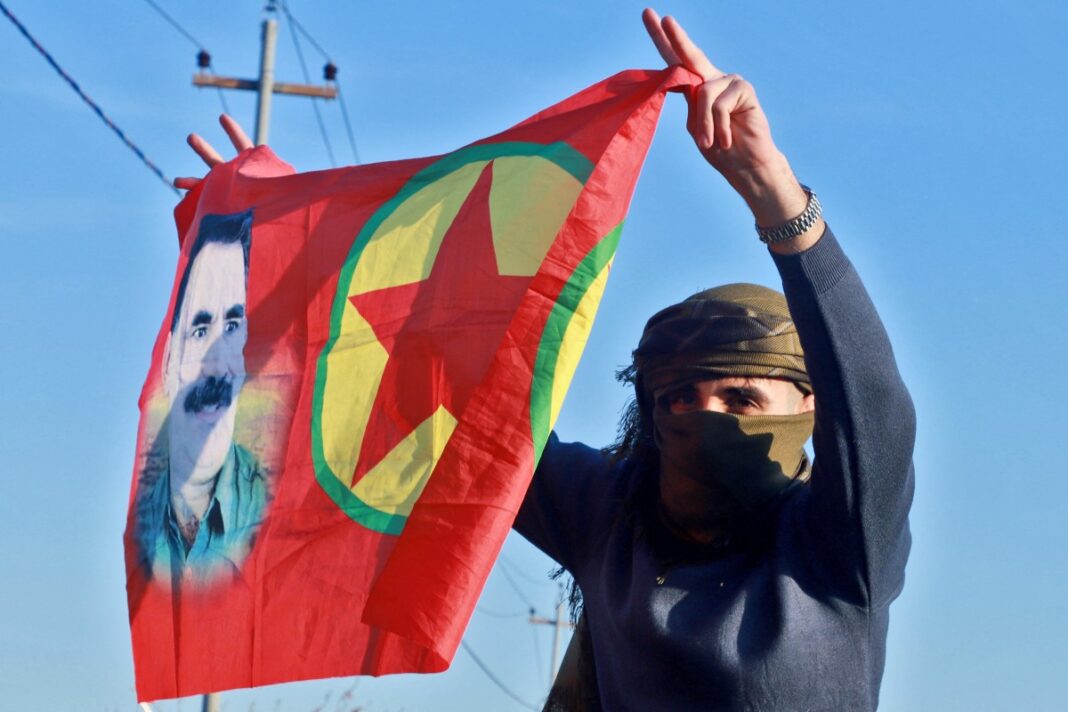Militants of the outlawed Kurdistan Workers’ Party (PKK) on Saturday declared a ceasefire with Turkey following a landmark call by jailed PKK leader Abdullah Öcalan asking the group to disband and end more than four decades of conflict.
It was the first reaction from the PKK after Öcalan this week called for the disbanding of the group and asked it to lay down its arms.
“In order to pave the way for the implementation of leader Apo’s [Öcalan’s] call for peace and a democratic society, we are declaring a ceasefire effective from today,” the PKK executive committee was quoted by the pro-PKK ANF news agency as saying.
“We agree with the content of the call as it is and we say that we will follow and implement it,” the committee, based in northern Iraq, said.
“None of our forces will take armed action unless attacked.”
The PKK, designated a terrorist group by Turkey, the United States and its Western allies, has waged an insurgency since 1984 with the aim of carving out a homeland for Kurds, who account for around 20 percent of Turkey’s 85 million people.
But more recently, the group has called for autonomy and cultural and linguistic rights rather than independence.
Since Öcalan was jailed in 1999 there have been various attempts to end the bloodshed, which has cost more than 40,000 lives.
After several meetings with Öcalan at his island prison, the pro-Kurdish Peoples’ Equality and Democracy Party (DEM Party) on Thursday relayed his appeal for PKK to lay down its weapons and convene a congress to announce the organization’s dissolution.
The PKK said on Saturday it was ready to convene a congress as Öcalan wanted, but “for this to happen, a suitable secure environment must be created” and Öcalan “must personally direct and lead it for the success of the congress.”
‘More stable Syria’
The group also said Öcalan’s prison conditions must be eased, adding that he “must be able to live and work in physical freedom and be able to establish unhindered relationships with anyone he wants.”
Analysts say establishing a truce with the PKK will be beneficial for Turkey and also for Syria, where strongman Bashar al-Assad was ousted late last year after a long and bloody civil war.
“A peace deal with the PKK is likely to make it easier to reunify and establish a more stable Syria,” Anthony Skinner, director of research at Marlow Global, told AFP.
“This is a key objective for the Turkish government, which has had to contend with the ongoing threat of cross-border mass migration and terrorism.”
The Turkish army, which has troops deployed in northern Syria, regularly carries out strikes on areas controlled by Syrian Kurdish forces it deems to be “terrorists” linked to the PKK.
Bayram Balcı, an analyst at the Sciences Po Paris university, said the Kurdish militants were well aware they no longer had the support they once had as the regional context has changed.
“They no longer have the support of Assad, and they may no longer have the strong support of the Americans,” he said.
“The threat of Daesh still exists, but it is not as strong as before. And then there is also a kind of fatigue,” he added, referring to the Islamic State in Iraq and the Levant (ISIL).
‘Historic opportunity’
After the last round of peace talks collapsed in 2015, no further contact was made with the PKK until October, when a hardline nationalist ally of President Recep Tayyip Erdoğan offered a surprise peace gesture if Ocalan rejected violence.
Erdoğan on Friday said Öcalan’s appeal was a “historic opportunity,” adding that Turkey would “keep a close watch” to make sure the talks to end the insurgency were “brought to a successful conclusion.”
While Erdoğan backed the rapprochement, his government cranked up pressure on the opposition, arresting hundreds of politicians, activists and journalists.
Iraq has welcomed Öcalan’s call, saying it was “a positive and important step towards achieving stability in the region.”
The PKK’s presence in Iraq has has been a recurrent source of tension between Baghdad and Ankara.
The group holds positions in Iraq’s autonomous Kurdistan region, where Turkey also maintains military bases and often carries out ground and air operations against the Kurdish militants.
© Agence France-Presse


